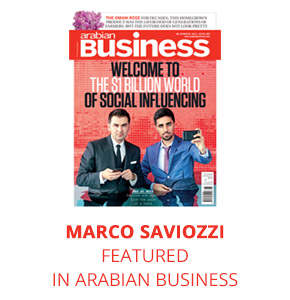Whether you’ve recently entered the field, or you’re still in the early stages of your career, or perhaps just considering a future as a broker, you will have already encountered the word ‘volatility’.
In short, market fluctuations come with this territory. And so far, 2017 is continuing the tradition. Back in January, Bloomberg expected high volatility as the markets reacted to a range of unknowns. Their ‘unknown’ of choice was the election of President Trump, but as the year has turned out we’ve also seen volatility caused by worries surrounding the elections in the Netherlands and France and, more recently, the surprise outcome of a hung parliament after the UK general election. Bloomberg noted that the past two years have been the most volatile two-year period since 2009, with emerging markets leading the way.
So what, if anything, can a broker do about it? Are there steps we can take to protect ourselves in a profession that’s so directly exposed to market volatility? What qualities will we need to survive or even thrive in such conditions?
Understanding volatility
Volatility describes the up-and-down movements of the markets, often expressed in ‘standard deviations’ from the expectation, though you’re just as likely to see it expressed as an annualised percentage. It’s usually measured by financial barometers such as the Chicago Board Options Exchange (CBOE) Volatility Index (VIX), generally considered the industry standard. According to Yale School of Management, historically the volatility of the stock market is roughly 20% a year and 6% a month. In other words, based on past history, you can expect stocks to fluctuate by around 20%, up or down, over any given year. But volatility isn’t constant. It changes in response to market conditions, so the market experiences periods of both high and low volatility.
Volatility describes the up-and-down movements of the markets, often expressed in ‘standard deviations’ from the expectation, though you’re just as likely to see it expressed as an annualised percentage.
There’s also a difference between historical volatility – the observed fluctuation of markets looking back – and implied volatility which is the expected volatility of markets looking to the future. Implied volatility is the thing that is reflected in market indices such as the VIX. The index is a reflection of market expectations about future volatility – which is why it’s sometimes seen as a gauge of investor fear and confidence, as well as the favoured volatility barometer.
There are many well-known examples of high volatility periods in financial market history, from the years that followed the Wall Street Crash, to the collapse of the tech bubble, the events of 9/11, and the 2008 financial crisis.
But it’s important to keep things in perspective. According to research done by McKinsey in 2016, while recent years have seen dramatic volatility, it’s actually lower than in benchmark periods such as the 2010s, the late 1980s and the mid 1970s. Measured over a longer period, more recent fluctuations such as those we faced over the last two years can get evened out. Five-year volatility in the period 2011-16 was actually lower than the past 50 years on average. The VIX Index hit a decade low in May this year, suggesting investor confidence in the markets is more stable than commentators expected at the start of the year.
The picture in the UAE
Here in the UAE, the last 12 months have brought their share of headaches for brokers. In 2016, brokerage firms were cutting costs and offering discounts, in an environment that saw daily trading volume on the Dubai Financial Market (DFM) General Index fall by 60% year-on-year. It’s no coincidence that this came at a time of low market volatility. Higher volatility often results in higher volume, which can actually benefit brokerage firms – and the converse – since their performance depends more on traded volume than on taking directional views of the market.

But there’s reason to be optimistic about economic conditions more generally in the region. Dubai’s Economic Development Committee has projected growth of 3.1% for this year, up from 2.7% in 2016. While the IMF predicted lower growth for the UAE, Gulf research experts Emirates NBD feel their take is ‘too pessimistic’.
Responding to volatility
So how do we respond when conditions turn volatile?
Working in global markets, it’s not possible to reliably predict market fluctuations, especially those caused by shock events. The value of the British pound sterling in foreign exchange markets is a case in point. It crashed after the 2016 EU referendum decision, and fell again after the recent UK terrorist attacks and the unexpected general election result. It also fell following the decision of several Arab states, including Saudi Arabia, the UAE and Egypt, to cut diplomatic and commercial ties with Qatar. Conversely, sterling rose again recently after the Bank of England indicated that it was closer to raising interest rates than the market expected.
Volatility will happen, whether you’re used to it or not. But while there’s a tendency for volatility to be regarded as a negative thing, it’s worth repeating that that’s not always the case. As brokers, market fluctuations can work in our favour, especially if they result in higher trading volume.
As brokers, market fluctuations can work in our favour, especially if they result in higher trading volume.
Getting to grips with ‘grit’
If volatility can be good or bad, but you can’t see it coming, how can you prepare? The answer lies in a range of essential qualities including determination, awareness and building experience.
In 2006, Sylvester Stallone’s perennial Rocky Balboa told us ‘It ain’t about how hard you hit. It’s about how hard you can get hit and keep moving forward’. Blunt boxing analogy aside, the sentiment is a lot like the the quality of ‘grit’, defined in a 2007 American study (by Angela L Duckworth and others) as ‘perseverance and passion for long-term goals’.
According to the authors of this study, grit entails working strenuously toward challenges, and maintaining effort and interest over the years despite failure, adversity, and plateaus in progress. They cited grit as being essential to high achievement in a range of professions. They also found that ‘grittier’ individuals had reached higher levels of education, while older individuals had a tendency towards more grit than younger colleagues, and individuals with more grit made fewer job changes.

Overall the study concluded that grit, coupled with natural talent, is a key differentiator in performance. Working through tough times teaches us to handle them. There’s a strong argument that ability to buckle down and stay the course is a key component in coping with the fluctuations of market volatility.
Doing your homework – there’s no substitute for knowing your job
Understanding that grit is part of the job won’t see you through on its own. You need to know what’s going on in your profession, to be able to apply your determination in a useful, directed way. Professional trader and author Gatis Roze described the typical broker’s day as beginning with at least three hours of research: checking the NASDAQ pre-market pages, skimming overseas markets, reading the news and investment periodicals and looking closely at the psychology of the market, while tracking volumes, prices and investor sentiment.
Knowing your job inside out is important for building credibility among your clients and working within regulatory guidelines, and essential for your long-term success as a broker. Keeping up to date with markets, wider trends such as the disruptive impact of fintech, and the macroeconomic picture, as well as networking and research, are all essential ways to spend your downtime.
As author Alexander Elder notes, ‘If your mind is not in gear with the markets, or if you ignore changes in the mass psychology of crowds, then you have no chance of making money’. While you can’t anticipate events with certainty, you can learn from experience and apply that learning to navigating future situations. Markets change quickly, and keeping on top of events allows you to apply your experiences to assess risk, while helping you to spot new opportunities. Experience is something that, by definition, only develops with time, from riding out the good and the bad. There’s a reason people talk about ‘hard-won experience’.
As author Alexander Elder notes, ‘If your mind is not in gear with the markets, or if you ignore changes in the mass psychology of crowds, then you have no chance of making money’.
Seeing volatility as an opportunity
In that sense, the best way to approach market volatility is to treat it as an opportunity – to thrive from it, not just survive it. To do this we need to build knowledge and experience, rather than trying to anticipate the unpredictable and panicking when we can’t.
It’s also worth remembering that battening down the hatches in rough times and emerging with new skills is likely to be noticed by employers. When recruitment giants Hays looked at UAE salary increases in 2015-16, they found that more than 20% of pay rises were gained not by changing jobs but by negotiating a performance-related boost. To do that, you need to be able to show your employer that you can take the rough with the smooth.
Building up your knowledge will stand you in good stead, but when you inevitably experience the difficult times, the experience you’ll gain will complement the groundwork you’ve put in.
About the author: Marco Saviozzi, CEO
Marco attained an MBA in Finance from the IEMI, Genève, before starting his career in corporate sales at Xerox. He would eventually move on to French firm Viel (now Tradition), before being headhunted by prestigious London firm ICAP, where he was brought in as head of the French Franc IRS Desk. He quickly rose to become a part of the management committee as Co-Head of the Euro Desk, and later moved to the New York office to head up the Equity Derivatives team. After 14 years at ICAP, in 2007, he opened Newedge – a Calyon / Societe Generale brokerage arm in Dubai. Two years later he would go on to form GMG as a co-founder with several past colleagues. When he is not facilitating trades on behalf of clients, Marco can be found on the golf course or watching his favourites sports – Formula 1 and horse racing.


